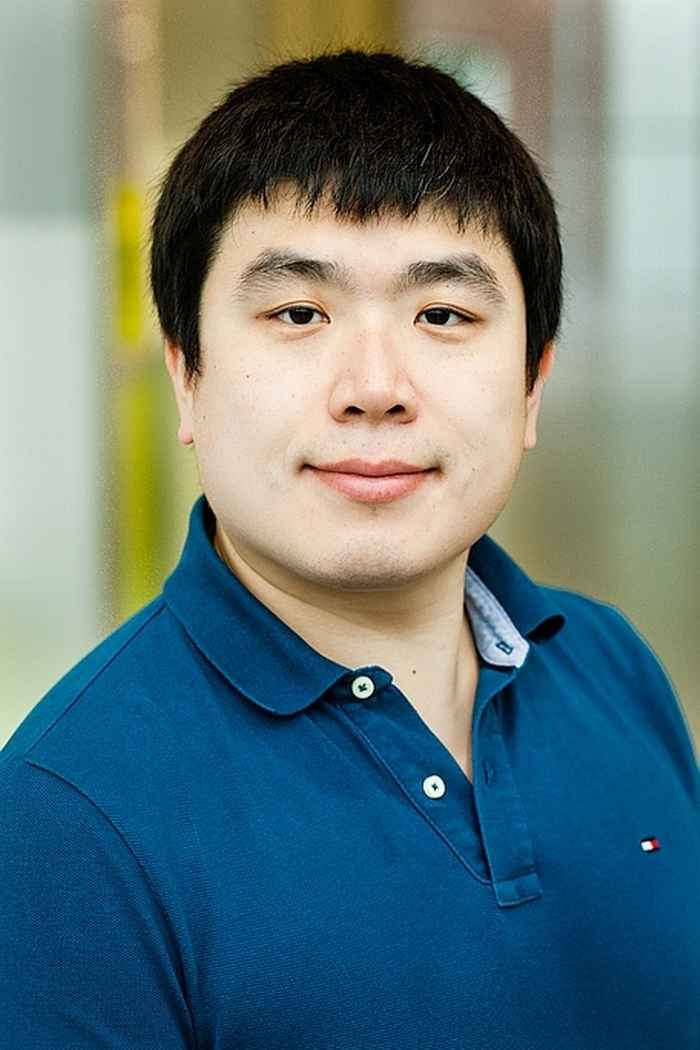Machine learning may help managers to make better decisions
9 July 2019

Computer science was initially meant to be a back-up plan. China-born Qingchen Wang ‘grew up playing video games’ and found artificial intelligence (AI) intriguing but wanted to become a doctor, he says during an interview at the Amsterdam Business School, part of the University of Amsterdam (ABS). If he wasn’t accepted to medical school, the study Computer science would offer him great career opportunities, was his thought. If anything, he could learn more about the functioning of video games. ‘In video games, you’re mostly playing against some form of AI. I kind of knew what was behind it and wanted to make it better.’
Wang moved to the US when he was eight and followed his parents to Canada as a teenager. During his college years in Canada, he became intrigued by machine learning, a subfield of both computer science and AI, and in June 2019, he successfully defended his thesis in Data science and Business analytics at the ABS.
Artificial intelligence vs machine learning
‘In traditional artificial intelligence, humans make the scripts the machine follows. In machine learning, one can provide the machine with data and have the machine – with some help from the human – provide a solution by itself’, Wang summarizes.
As an example of what can be achieved through the successful use of modern machine learning techniques within the field of AI, he cites AlphaGo, which in 2017 made headlines worldwide by defeating the then-human champion of the Japanese board game Go. Since 2017, several more powerful successors of AlphaGo have been demonstrated.
Wang’s research at UvA focuses on the intersection between machine learning and operations management. ‘In operations management, the main focus is on decision-making in business processes, while machine learning tends to focus on making predictions’, he says. ‘By incorporating machine learning into operations management, the machines get to help managers to make better decisions, based on better predictions.’
‘They have been very good at gathering data, but are not yet equipped to take advantage of it.’
Taking advantage of data
Wang’s PhD position was funded by the Amsterdam Academic Alliance - an initiative of among others UvA, VU University Amsterdam and software company ORTEC. For his PhD thesis Machine learning in operations management and digital marketing, Wang looked at how machine learning can be applied to solve prominent problems in operations management and digital marketing. He looked into problems submitted by four different organisations. ‘They have been very good at gathering data, but are not yet equipped to take advantage of it.’ With his thesis, Wang wanted to show that machine learning can solve problems in ways existing approaches cannot. ‘Some people have ideas that they believe could work. I want to show them they actually do work.’
Deploying algorithms
One of the studies, for example, involved a consumer debt collection company, which had as a basic rule to call all debtors regularly. However, some people will pay their debts without being called, hence the human resources can be allocated more effectively. Based on past experience distilled from the database, Wang and a fellow researcher developed an algorithm to determine whether a person needs to be called on a particular day. ‘People were being called too early in the process. Using the algorithm, the amount collected per call rose by over 47%.’

Browsing behaviour
For his PhD study, Wang looked into a question of an online travel agency about the attribution of online purchases to digital advertising. Consumer browsing behaviour was a treasure of data that could be used to predict the online purchases of the consumer. Wang developed a model that would take the individual browsing behaviour of the consumer into account. He also developed a method that can streamline a call centre’s staffing.
Extracurricular competitions
Key to perfecting his skills was taking part in dozens of competitions via the online community of machine learners and data scientists Kaggle. Taking part in competitions gained him a lot of experience. ‘Not only is it important, but it also defines everything that I currently do,’ says Wang. He won several first and second prizes, making him one of 143 Grandmasters in the community of over 110.000. His track record on Kaggle makes companies eager to work with him.
'Not only is it important, but it also defines everything that I currently do.'
Competitions as learning material
The competitions are also useful for teaching, says Wang, who has been teaching various subjects at University of Amsterdam and VU since 2016. Best of all, the competitions involve real problems. ‘They’re realistic and relevant. Unlike homework questions, which are hypothetical.’ For example, for a competition organised by Liberty Mutual in which Wang won the first prize in 2015, competitors were asked to predict pre-existing damage. This knowledge enabled the insurance company to more accurately identify high-risk homes that need to be closely examined. ‘There may be twenty ways to solve the problem. I tell my students to study the solutions others have come up with on Kaggle, and learn from others what works best.’
Solving problems in a vacuum does not work in today’s fast-changing environment, Wang stresses: ‘You’ll be slow and miss out on some good stuff others have come up with.’
For now, Wang remains in the academic world. In July, he will take a research and teaching position at the University of Hong Kong.